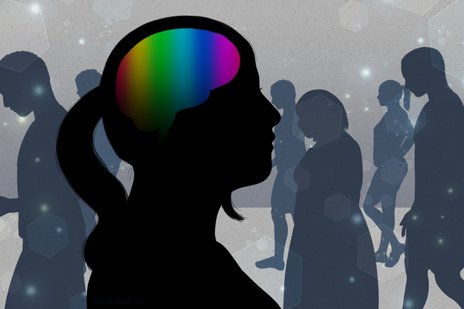|
12/22/2021 0 Comments clinical neuropsychologistWritten by Aunice Yvonne Reed, M.S, M.A. If you would like to become a clinical neuropsychologist, you will need to commit to many years of training and education as it typically takes longer to become a clinical neuropsychologist than a medical doctor. The Human brain is at the heart of neuropsychologyThe human brain is the most wondrous organ in the body, but still not completely understood and in many ways remains a total puzzle to us. Responsible for regulating every organ and organ system in the entire body, the brain is frequently likened to a master computer. For without the brain, we cease to live. The brain is necessary for many functions we do automatically without conscious effort or thought: breathing, beating of the heart, sensing pain or temperature, digesting food, seeing, hearing and so much more. What's even more impressive is that it controls and affects behavior, the things we do, how we think, feel, reason and decide.  "Men ought to know that from nothing else but the brain come joys, delights, laughter and sports, and sorrows, griefs, despondency and lamentations. And by this, in an especial manner, we acquire wisdom and knowledge, and see and hear and know what are foul and what are fair, what are bad and what are good, what are sweet and what are unsavory...And by the same organ we become mad and delirious, and fears and terrors assail us...All these things we endure from the brain when it is not healthy...In these ways I am of the opinion that the brain exercises the greatest power in the man." Hippocrates of Kos, Father of Western Medicine (c. 460 BCE - c. 470 BCE) what is neuropsychology?It is the duty of neuropsychologists to know, explain and interpret the many ways the human brain governs our thinking and behavior. More specifically, neuropsychology is the branch of psychology specializing in understanding neurophysiology and its effect on human behavior and cognition. Neuropsychologists are concerned with analyzing and evaluating the effects of brain disease or injury upon a person’s thinking processes, reasoning, mood and discernment. The history of neuropsychology is rooted in neuroscience, a relatively new science, although study of the human brain itself spans back thousands of years. From the dawn of humankind, people have had a preoccupation with learning about and understanding the principle organ of behavior. How was it then, that mankind came to realize that the nervous system (brain, spinal cord and peripheral nerves) is absolutely necessary for survival? How did we figure out and come to know the inner-workings of the brain, the location of essential organs such as the brain stem and cerebellum? How is it that we know where the speech centers are located? Archeological evidence consistently indicates that people have been learning about the brain since prehistoric times. Hominid skulls dating back millions of years exhibit trepanning, a kind of prehistoric brain surgery which oftentimes resulted in death. This was not the intention, but it suggests that finding a cure of some kind was the goal. Trepanning was a kind of surgical procedure done during ancient times for the purpose of either releasing pressure caused by brain disease or injury, or to get rid of bad spirits (i.e. mental disorder). It was thought that by easing the pressure through boring a hole in the cranium, an individual will experience elevated consciousness and wellbeing. Many trephined skulls show evidence of bone regrowth around edges of the hole, indicating healing had taken place postoperatively. Likely the oldest known surgical procedure, trepanning was quite common as indicated by the large number of trepanned skulls found. During ancient Egyptian times, writing of early physicians suggests a knowledge of brain disease and accompanying symptoms. Interestingly, it was thought that the heart contained the soul of man and therefore was where memories were held. Upon death and embalming, the body was meticulously prepared for burial, taking care to preserve vital organs in separate jars. The brain was extracted and thrown out. The understanding that the consciousness of mankind resided in the heart was not disputed until Hippocrates. trephination (see below): A Skull from the Bronze Age. Evidence of trephination and subsequent healing. Although the procedure was dangerous, some people survived it.what are the duties of a clinical neuropsychologist?An individual is typically referred to a neuropsychologist when neurological impairment seems probable, needs clarifying, or to follow-up and obtain an update on the status of a condition. Neuropsychologists are useful for making a diagnosis in conditions such as Attention Deficit Hyperactivity Disorder (ADHD), stroke, Parkinson's disease, dementia, traumatic brain injuries (TBI) and substance abuse disorder effects. Neuropsychologists are extremely helpful in determining the course of treatment and rehabilitation. About Sub-Specialties Within Clinical Neuropsychology Most clinical neuropsychologists have a specific kind of population or problem they focus upon. As such, there are several recognized sub-specialties within the field:
how can i become a clinical neuropsychologist?Clinical neuropsychology involves the study of clinical psychology with a focus upon the interconnected association of the brain with behavior. An understanding of this relationship is important, as there are significant implications for patients diagnosed with brain disease, trauma and cognitive disorders. If you would like to become a clinical neuropsychologist, you will need to commit to many years of training and education. To become a clinical neuropsychologist, you will need to: 1. Complete a four-year undergraduate degree in psychology (4 years). 2. Complete a doctorate in clinical psychology (PsyD or PhD) accredited by the American Psychological Association (APA) (5 years). 3. Finish all doctorate education requirements, including the dissertation, complete a pre-doctoral clinical internship (1 year). It is the culminating point of completing the doctoral program. You'll participate in the National Match Program, the linkage process of psychology students in doctoral programs to clinical internships. The Association of Psychology of Post-Doctoral and Internship Centers (APPIC) helps to facilitate matching program. 4. Complete a post-doctoral residency in clinical neuropsychology (2 years). Here you'll practice as a clinical neuropsychologist while under supervision. When you have completed all hours and other requirements to sit for the psychologist's examination in your jurisdiction, the residency term is finished. 5. Take the psychologist's examinations in your region of practice and become licensed to practice independently as a clinical psychologist. 6. Obtain board certification from the American Board of Clinical Neuropsychology (ABCN), or the American Board of Professional Neuropsychology (ABPN). Although this is completely voluntary, many employers require board certification because it establishes credibility in the specialty. As you can see, it takes 10-12 years of training minimally to become a clinical neuropsychologist, a little longer if you decide to complete a master's degree along the way. These professionals must acquire a lot of knowledge, particularly in neuropathology, neuroanatomy, neurochemistry and neurological rehabilitation. Clinical neuropsychologists do work in private practice, but many are employed by hospitals, medical centers and medical schools. Most juggle several responsibilities and roles, which may include express involvement in research. Neuropsychologists are among some of the highest paid psychologists. How much a neuropsychologist makes depends on the practice setting and jurisdiction of practice. In California and Washington, for example, neuropsychologists earn significantly more when compared to other areas of the U.S. To be more precise about the salaries of neuropsychologists in your own jurisdiction, try researching sites like Ziprecruiter or Payscale. These websites provide frequent updates, as salary information may fluctuate over time. While the above information is directed towards U.S. psychology students and practitioners, it is applicable to students in most areas of the world. No matter where in the world you reside, you'll need a post-graduate education and a psychologist's license to become a clinical neuropsychologist. Doctoral Programs in Neuropsychology and Accreditation: A Necessary Word of CautionWhen becoming a neuropsychologist, it is especially important to complete a program accredited by the American Psychological Association (APA) or the Canadian Psychological Association (CPA). While not every state requires APA/CPA accreditation to become a licensed psychologist, clinical internships and residency programs for neuropsychologists do. If you reside in a state where such accreditation isn't required, be certain to attend an APA/CPA-accredited neuropsychology doctorate program anyway. Otherwise matching to a post-doctoral internship will be next to impossible to achieve. Furthermore, this will negatively affect board certification after licensing. Every single step of the process is linked to APA/CPA accreditation. further resources and information: to doThe Association of State and Provincial Psychology Boards (ASPPB)- Find examination information and locate the state board agency in your state. Learn what is required for licensing in every U.S. state jurisdiction.
Association of Psychology Post-Doctoral and Internship Centers (APPIC) - Search and apply for clinical internships and post-doctoral residency programs. The Houston Conference on Specialty Education & Training in Clinical Neuropsychology - Review the idealized educational and training model for neuropsychologists. The Missing Link Podcast - Listen to an interesting interview with a clinical neuropsychologist.
0 Comments
Leave a Reply. |
© 2023 Aunice Yvonne Reed. Top Online Psychology Schools. All Rights Reserved.
|


 RSS Feed
RSS Feed
